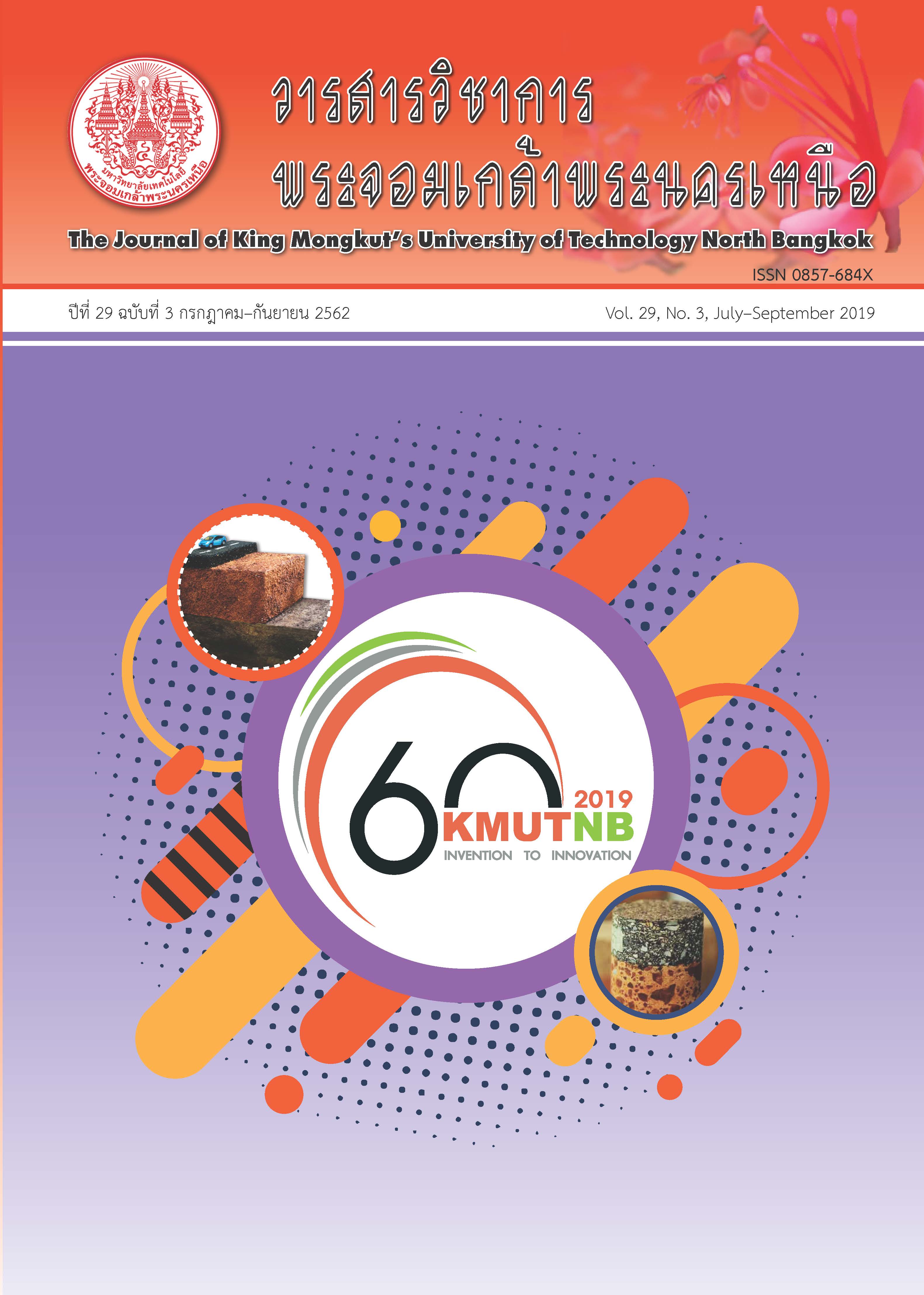Model of Intelligent Cloud Learning System to Develop Digital Literacy and Collaborative Learning Skills
Main Article Content
Abstract
Intelligent cloud learning system is a learning tool which is used to adaptive suitable contents and tests for individual learners’ and group activities. The purposes of this research comprise: 1) to design intelligent cloud learning system to develop digital literacy and collaborative learning skills; and 2) to evaluate the appropriateness of the model of intelligent cloud learning system to develop digital literacy and collaborative learning skills Questionnaires were used to evaluate the appropriateness of the model on the components of intelligent cloud learning system from seven experts who have experiences in designing learning model and education technology. From the results, it can be concluded that the overall appropriateness of the model of intelligent cloud learning system to develop digital literacy and collaborative skills reaches the mean score of 4.48 (S.D. is 0.51) with very high level of the appropriateness.
Article Details
The articles published are the opinion of the author only. The author is responsible for any legal consequences. That may arise from that article.
References
[2] P. Wannapirun and N. Wattananan, “Digital intelligence,” Journal of Technical Education Development, vol. 29, no. 102, pp. 12–20, 2017.
[3] S. Tadawattanawit, “The characteristics of the graduates in accordance with the development of Thailand according to the “Thailand 4.0” Economic Model,” Dusit Thani College Journal, vol. 12, no. 2, pp. 404–416, 2018.
[4] W. Panit, “21st century skills,” in 21st Century Learning Path for Disciples, 3rd ed. Bangkok: Sod Sri Saritwong Foundation, 2012, ch. 1, pp. 9–48.
[5] M. Tiantong, “Use of IT for teaching and learning in the Education 4.0 age,” The Jornal of King Mongkut’s University of Technology North Bangkok, vol. 28, no. 3, pp. 489–491, 2018.
[6] A. Rattanatirakul, “Education as a service for instructional in the digital age,” Journal of Pacific Institute of Management Science, vol. 4, no. 1, pp. 308–320, 2018.
[7] Y. Bai, S. Shen, L. Chen, and Y. Zhuo, “Cloud Learning: A new learning style,” in Proceedings International Conference on Multimedia Technology, 2011, pp. 3460–3463.
[8] S. Wanotayapitak, “Integration of blockchain to cloud computing in e-portfolio,” The Jornal of King Mongkut’s University of Technology North Bangkok, vol. 28, no. 3, pp. 677–686, 2018.
[9] W. Thongyu, “Intelligence online system for automatic route planning by using genetic algorithm,” The Jornal of King Mongkut’s University of Technology North Bangkok, vol. 28, no. 4, pp. 789–798, 2018.
[10] K. Sujaree and S. Jirawongnusorn, “Blood vehicle routing problem by hybrid cuckoo search algorithm,” Kasem Bundit Engineering Journal, vol. 8, no. 2, pp. 206–226, 2018.
[11] G. Sriharee, “Software engineering prospective on digital game-based learning for thailand education 4.0,” The Journal of King Mongkut’s University of Technology North Bangkok, vol. 28, no. 2, pp. 477–488, 2018.
[12] S. Sitti and S. Sopeerak, “The web-based instruction model based on connectivism learning theory to enhance problem-solving skill in information and communications technology of higher education students,” Journal of The Far Eastern University, vol. 8, no. 2, pp. 102–112, 2015.
[13] R. Laoha and N. Laoha, “The development instructional design flipped mastery classroom model using connectivismtheory on virtual classroomtowards creative thinking skillfor students in higher education,” Pimontam Research Institute Journal, vol. 5, no. 1, pp. 227–238, 2018.
[14] K. Lertbumroongchai and P. Wannapiroon, “Connectivist digital learning model via cloud technology to enhance creative media innovation construction,” Journal of Thonburi University, vol. 12, no. 29, pp. 221–228, 2018.
[15] A. Im-erbtham, S. Inthapichai, and T. Boonyasopon, “Development of quality management in water distribution maintenance system model for branch office of metropolitan waterworks authority,” The Jornal of King Mongkut’s University of Technology North Bangkok, vol. 28, no. 3, pp. 649–656, 2018.
[16] M. Sopa, K. Jeekratok, and N. Sungsuthi, “An application of cuckoo search algorithm for decision support system of selected the item quality,” in Proceedings The Eleventh National Conference on Computing and Information Technology, 2015, pp. 320–325.
[17] Y. Thepsuriyanon, J. Ketchatturat, and C. Tuipae, “The development of performance appraisal saytem for teacher in saint gabriel’s foundation of thailand by using hybrid evaluation approach,” Journal of Education Khon Kaen University, vol. 35, no. 3, pp. 40–48, 2012.

